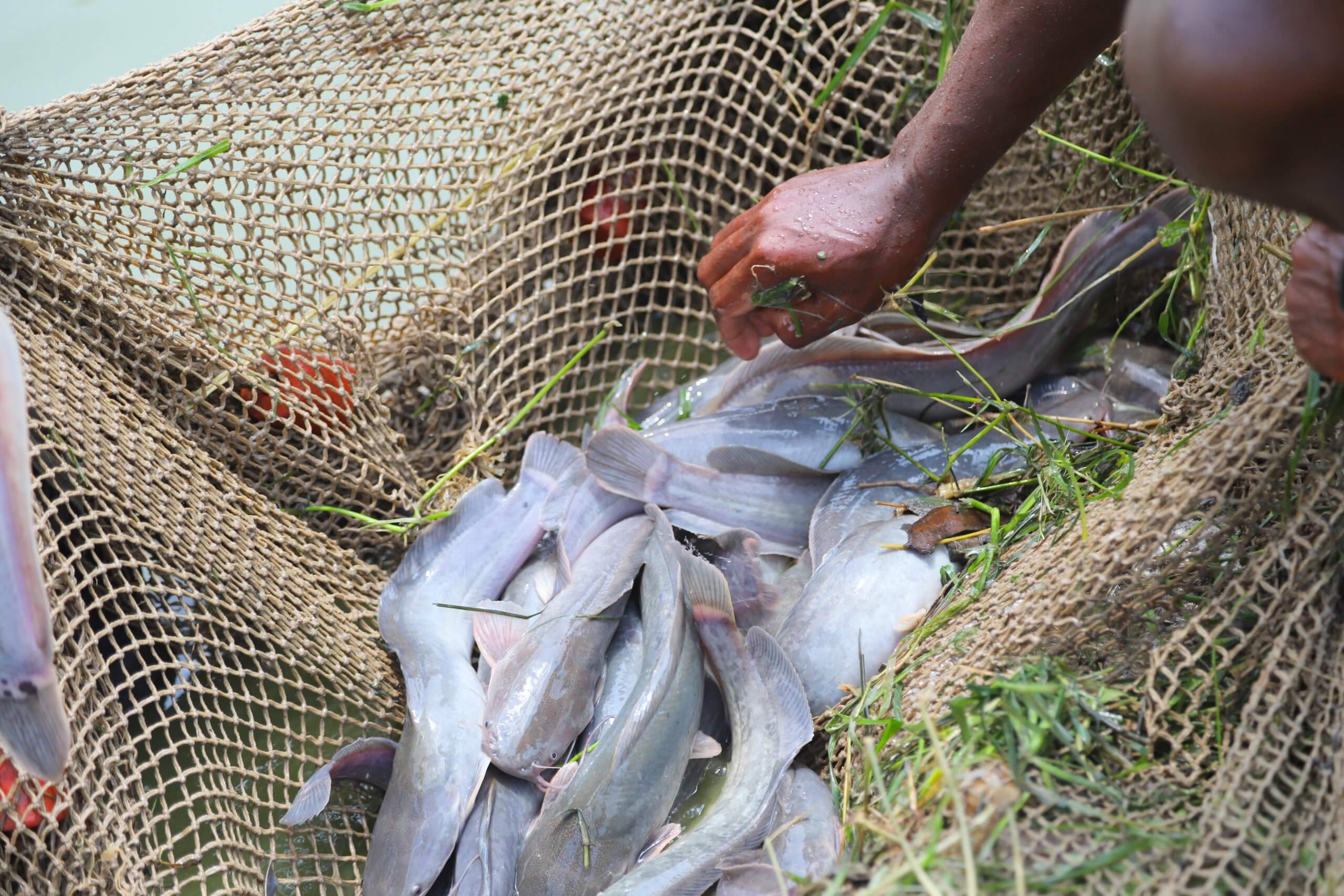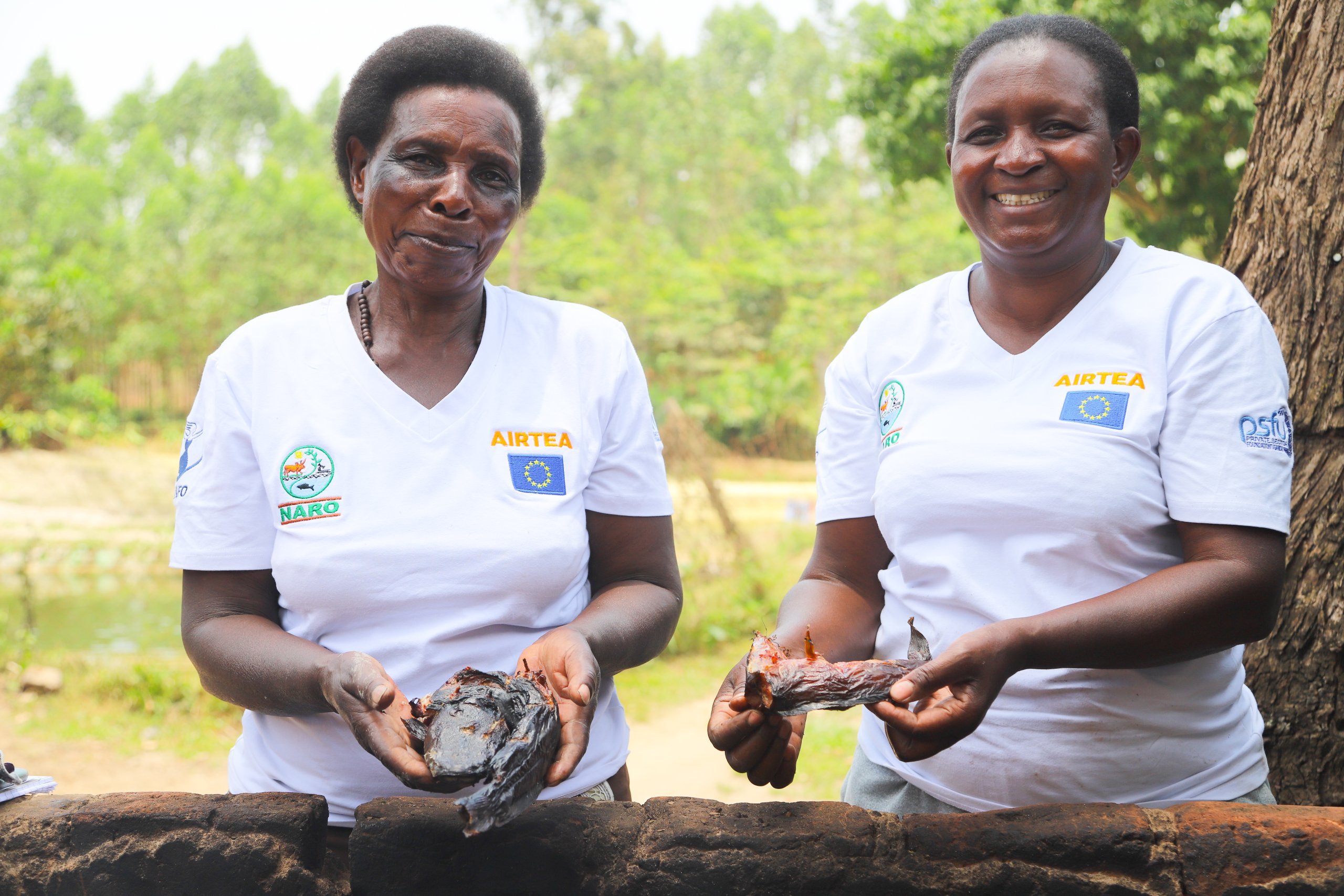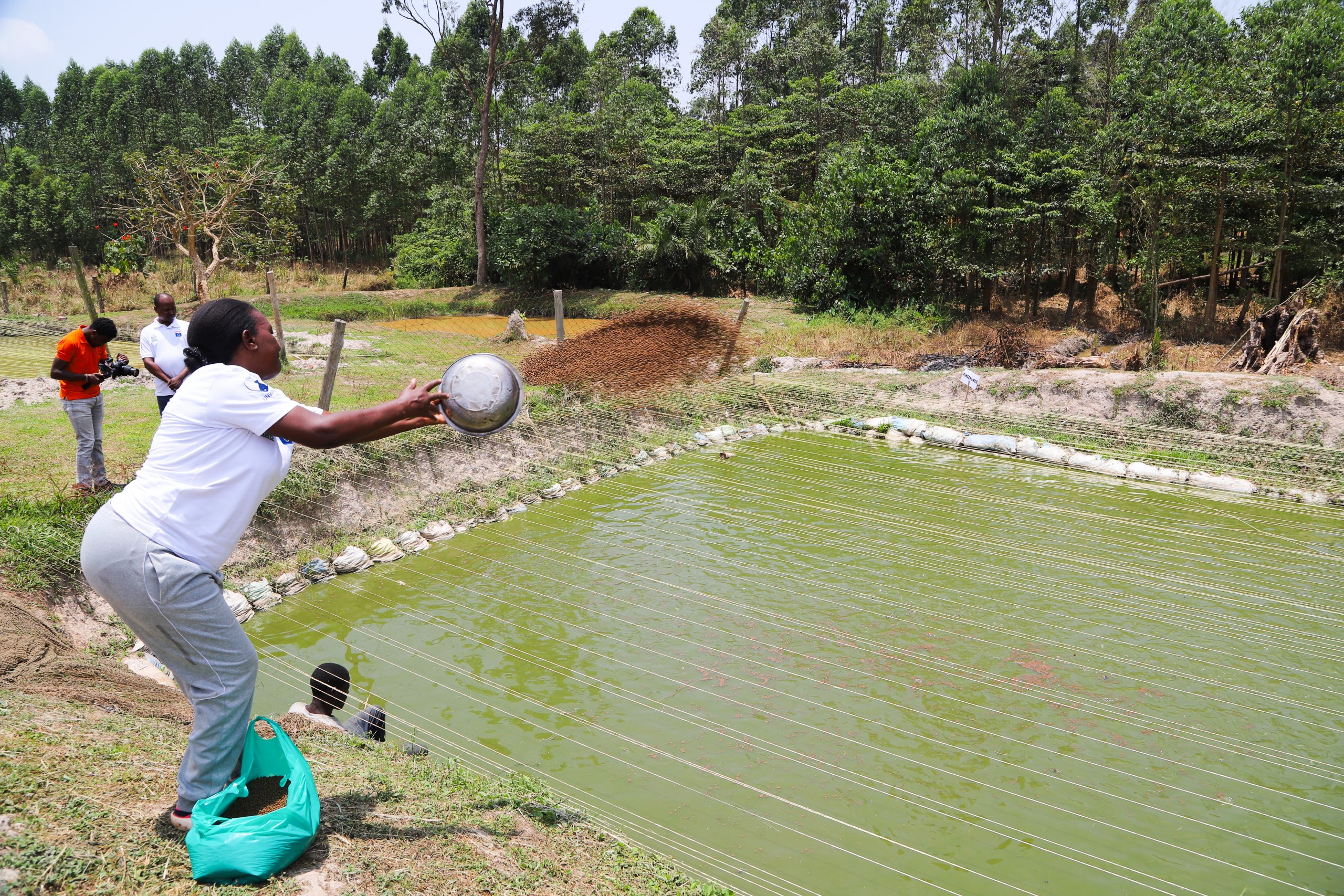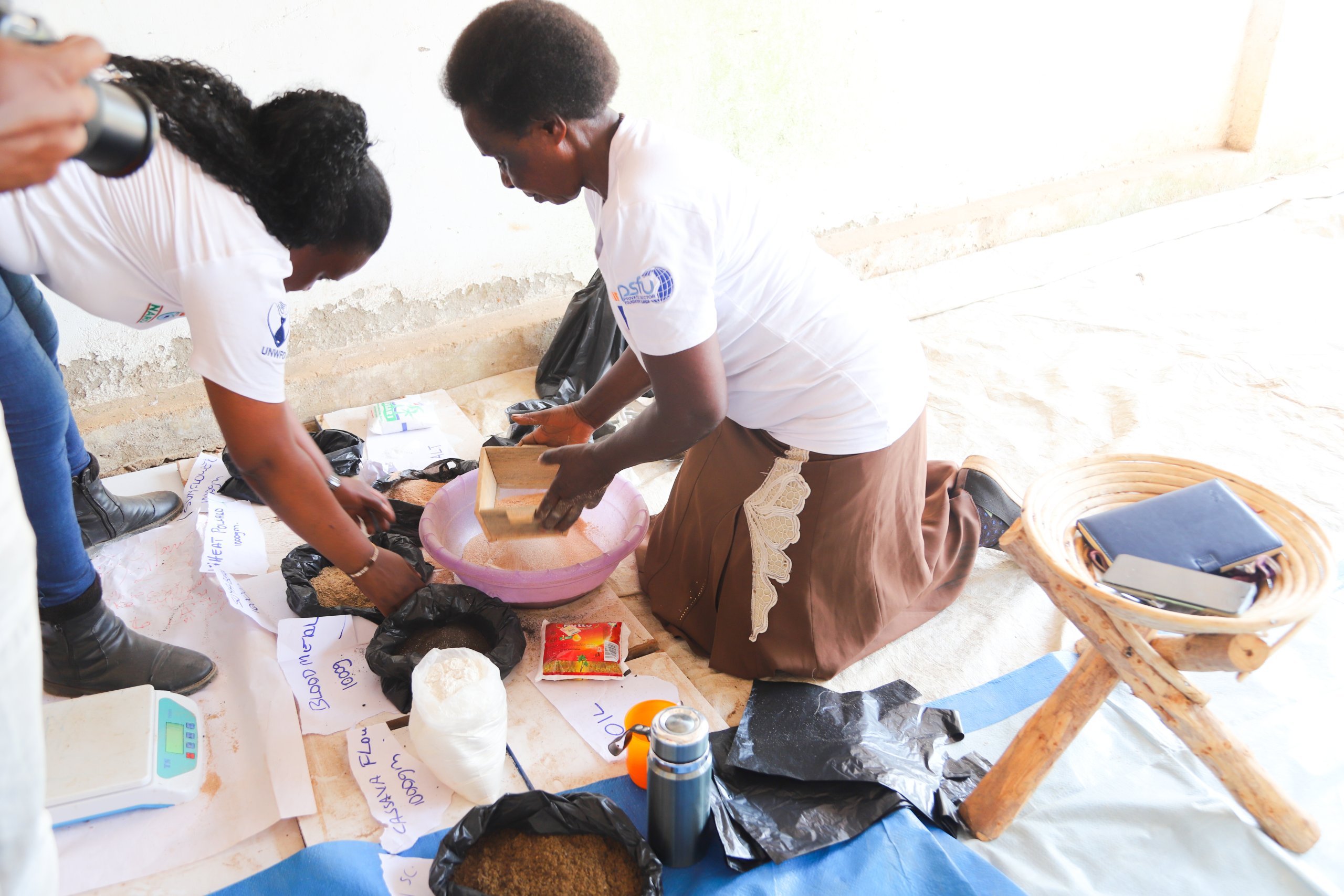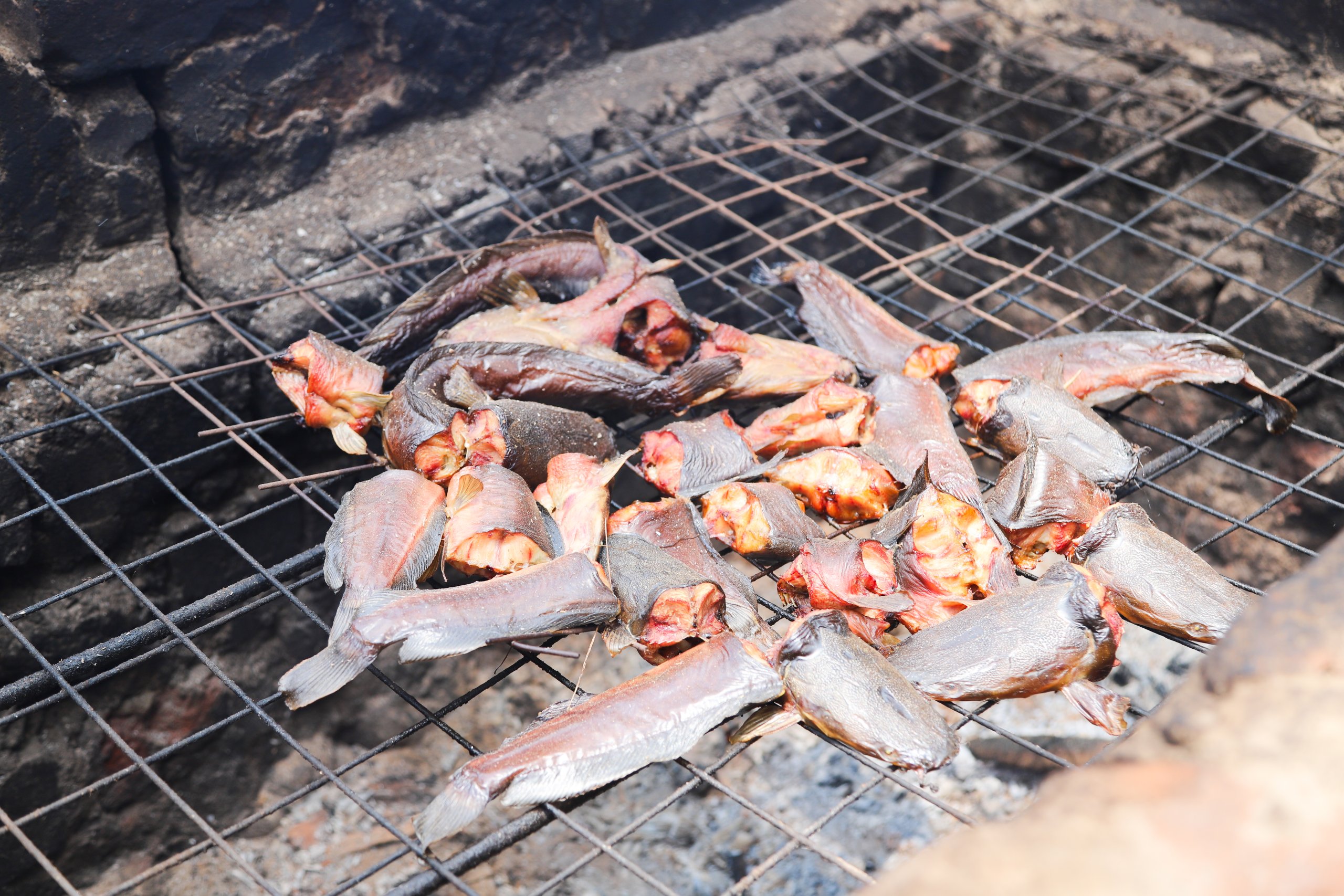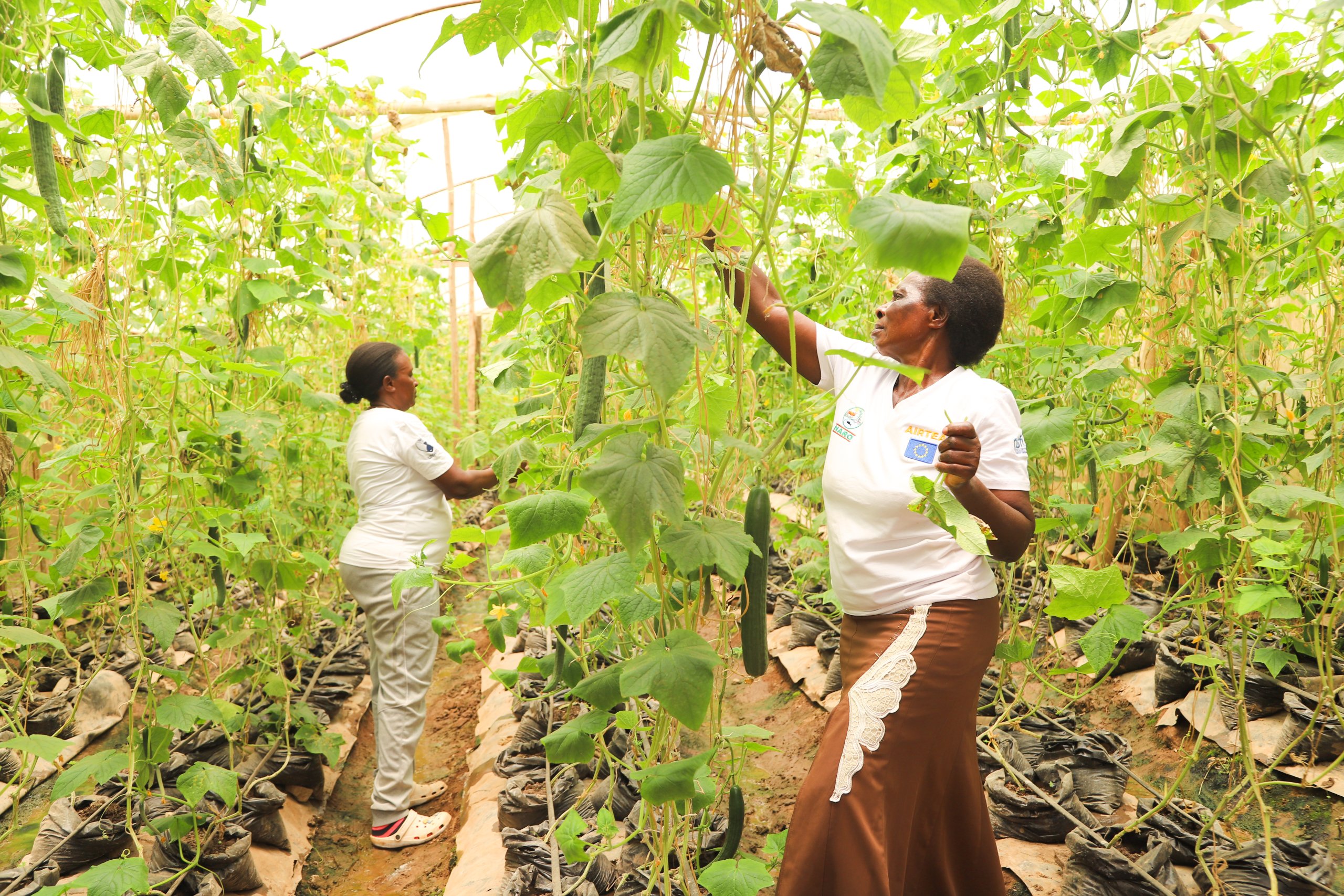Empowering Aquaculture in Uganda: How Multistakeholder Innovation Platforms Transformed Fish Farming in Uganda.
BY GENEVIEVE APIO
In the heart of Mukono District, Uganda, a powerful story of transformation is unfolding, driven by knowledge sharing, innovation, and collaboration. At the center of this change is Justin Bagenda and Vicky, co-founders of Juvic Continental Agro Farm, a growing aquaculture enterprise located in Nyenge, Goma sub-county.
As beneficiaries of the EU-funded AIRTEA Project, the duo transitioned from small-scale, rudimentary fish farming to a thriving agribusiness model centered around catfish production, value addition, and community training.
The AIRTEA project is jointly coordinated by the Forum for Agricultural Research in Africa (FARA), the Association for Strengthening Agricultural Research in Eastern and Central Africa (ASARECA), and the East Africa Farmers Federation (EAFF) and is funded by the European Union (EU), ACP Innovation Fund through the Office of the Organization of African Caribbean and Pacific states (OACPS).
From Rudimentary Beginnings to Modern Aquaculture
Justin and Vicky began their fish farming journey in 2021 with limited knowledge and basic practices. Despite their enthusiasm, their six fish ponds operated far below potential only two were in use, stocked with just 1,000 fingerlings each. Profitability was low, especially for tilapia, and the returns could not justify the investment. Yet, their determination to grow pushed them to seek better solutions.
“Before AIRTEA, we didn’t know how much we were losing. We had understocked ponds and lacked proper management techniques. The training changed everything,” said Justin.
Their breakthrough came through the AIRTEA Project “Harnessing Multistakeholder Innovation Platforms for Knowledge Transfer and Aquaculture Value Chain Development in Uganda”. Implemented by the Abi Zonal Agricultural Research and Development Institute (Abi ZARDI), picked them out as beneficiaries and offered training to them in value addition, and post-harvest handling.
They were advised to join and become members of the Lake Victoria Crescent Multistakeholder Innovation Platform, which supported farmers across Uganda with practical skills, technologies, and partnerships to unlock the potential of the aquaculture value chain.
It brought together stakeholders from public and private sectors through Multistakeholder Innovation Platforms (MSIPs) to improve knowledge sharing and innovation in aquaculture.
Through this initiative, Justin and Vicky received comprehensive training in best practices in pond construction and management, water quality control, optimal fish stocking rates, affordable feed formulation, and post-harvest handling and value addition.
Other key partners like the Private Sector Foundation Uganda (PSFU) and the Uganda National Women’s Fisheries Organization (UNWFO) contributed business development training and value addition knowledge.
Results: A Leap in Production and Profitability
With the new knowledge gained from the trainings, they restocked their 18 x 20-meter ponds this time using recommended stocking rates of 2,000 fish per pond, doubling their total stock to 4,000 fingerlings.
The results were immediate and impressive. Within eight months, their fish had matured down from the previous 12-month cycle. Each fish weighed approximately 1 kilogram at harvest, yielding a total of 4 tonnes of catfish. Selling at around USD 2 per kilogram, Juvic Continental Agro Farm earned approximately USD 8,000 in profits nearly four times their previous earnings.
One game-changing strategy was formulating their own feed. Using locally available raw materials and simple machinery supported through the project, they cut feed costs significantly. “We noticed faster growth in our fish, and their maturity period reduced by nearly half,” says Justin.
The AIRTEA Project also supported them in acquiring affordable equipment to aid feed production, like pellet pellet-making machine, and a fish-smoking kiln.
Value Addition and Market Access
Beyond fresh fish, the two fish farmers ventured into value addition. They diversified their product through smoking fish using a locally built facility, air frying and filleting, and roducing fish sausages, samosas, and fish fingers
These innovations significantly increased the value of their products. While fresh fish sold for about USD 2/kg, smoked and processed fish products fetched up to USD 4/kg. This value addition not only boosted profits but also opened access to new consumer segments.
Membership in the Lake Victoria Crescent Multistakeholder Innovation Platform further enhanced their visibility. Through the platform, they connected with new buyers, especially those preferring smoked or processed fish, expanding their customer base beyond local markets.
Broader Project Milestones
The AIRTEA Project made substantial impact nationwide by facilitating formation of 9 zonal Multistakeholder Innovation Platforms, culminating in a National Platform, training of over 135 women in post-harvest handling and value addition, distribution of manuals on best aquaculture practices, and creation of Knowledge Management Information Systems to support ongoing farmer learning.
These platforms facilitated partnerships among researchers, private sector actors, and farmers—especially women and youth, to drive change along the aquaculture value chain.
Future Prospects
Even after the AIRTEA Project’s completion, Juvic Continental Agro Farm remains on a growth trajectory. Justin and Vicky plan to, invest in a sausage-making machine to diversify into fish sausages and nuggets, expand pond infrastructure on their available land, create a digital marketing presence to reach regional and international markets, and establish a knowledge hub to train women, youth, and school students in fish farming.
They have also adopted circular farming practices, reusing nutrient-rich pond water for irrigating vegetable gardens and greenhouses, increasing farm efficiency and sustainability.
“We are no longer just fish farmers, we are trainers, processors, and business people. Thanks to AIRTEA, our farm has become a model for others to learn from,” said Vicky.
The story of Juvic Continental Agro Farm is a shining example of what’s possible when innovation, targeted support, and inclusive platforms are used to empower farmers.
With the continued backstopping from 12 Trainer-of-Trainers (ToTs) across different zones in Uganda, the ripple effects of this project will continue to benefit hundreds of farmers long after its close.
“We want to empower more women and youth through aquaculture. This is not just farming this is a sustainable business and a source of livelihood,” says Justin.
Their journey from basic fish farming methods to running a profitable, value-added aquaculture business demonstrated what is possible when knowledge sharing, innovation, and collaboration came together to empower smallholder farmers.
Pictures by: Genevieve Apio

